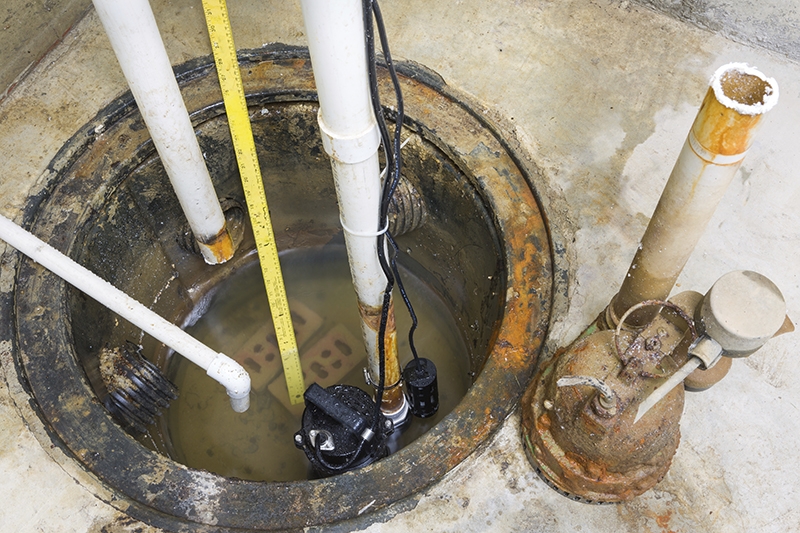Most Indiana homes and many businesses require the use of sump pumps. You probably don’t think about this vital piece of equipment very often. In fact, most conversations about sump pumps happen because the pump has stopped working for some reason, leading to a sump pump emergency. If not caught quickly, these situations can end in serious and damaging flooding.
Do you know if your home or business has an adequate sump pump system? What would happen to your pump if your area experienced periods of heavy rain? What if the electricity went out during a big storm – do you have a back-up system in place?
Reasons Sump Pumps Stop Working
Sump pumps stop working for several reasons. Often, it’s just a matter of being “not-big-enough-for-the-job.” If you live in an area that frequently experiences high rain volume – or even if your system is too small or low quality – your sump pump may simply not be able to keep up with the amount of water coming in.
Also, if you don’t have a back-up power source on your sump pump, a power outage will most certainly leave you in an emergency situation. Back-up batteries are a must for your sump pump system, since power outages often happen during heavy storms, a time when you need your pump to be working extra hard instead of not at all!
Overheating is another problem that will stop a sump pump from working. This is most common in plastic pumps or those with sub-par construction or faulty installation. Overheating usually triggers a shut-off switch that stops your pump from operating.
Other problems that can cause your system to stop working include: debris clogging your pump, clogged or frozen discharge lines, a jammed or tangled float switch, a short-cycling issue or a broken check valve. These can usually be easily diagnosed by your plumber and repaired.
How to Avoid Sump Pump Disaster
Knowing your system is the best way to be proactive about how to avoid ending up with flooding and damage due to a sump pump emergency.
You may need to consult an efficient, experienced Fite Plumbing representative to make sure your system has what it needs to get the job done in your home or business. Make sure to find out – based on your geographic location, home or business size, and local weather patterns – if your system has an adequately sized sump pump in place. Discuss whether a secondary pump is necessary for your individual needs. Find out if you have a back-up power source in place. And ask for an inspection of your system to discover any lurking problems before they become an emergency issue.


